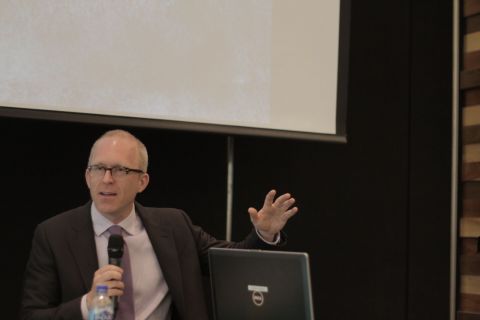
Professor Darryl Robinson explores “crimes against humanity” designation in Mexico
Since 2006, Mexico has experienced tens of thousands of killings and disappearances and thousands of reported cases of torture in connection with the “war on drugs.” Are those crimes simply “drug-related violence” or might they also be “crimes against humanity?” That’s the issue international criminal law professor Darryl Robinson is now exploring in Mexico City.
Robinson has been invited as the keynote speaker at the first academic conference to be held in Mexico on the subject of possible crimes against humanity in that country. Robinson will also have a series of meetings with NGOs and Mexico’s National Human Rights Commission, Attorney General’s Office, Ministry of the Interior, Ministry of Foreign Affairs, and the Mexican Supreme Court. The conference and meetings were arranged by the Case Matrix Network, an organization that strengthens national capacity to deal with crimes.
“This topic involves factual disputes, legal uncertainties and political sensitivities, and I will learn about the different perspectives”, says Robinson. “I hope to share thoughts on the concept of crimes against humanity. In my view, modern conceptions of crimes against humanity encompass large-scale organized violence by any actors. We will discuss how this legal frame might provide additional tools and further galvanize efforts to respond to the violence.”
In 2006, Mexico ratified the International Criminal Court (ICC) Statute. Some organizations have requested the ICC to examine possible crimes against humanity.
Robinson, an expert on crimes against humanity, helped draft the main codification of the term in the International Criminal Court Statute, served as amicus curiae on these crimes at the ICC, and has written extensively about the boundaries of the concept.